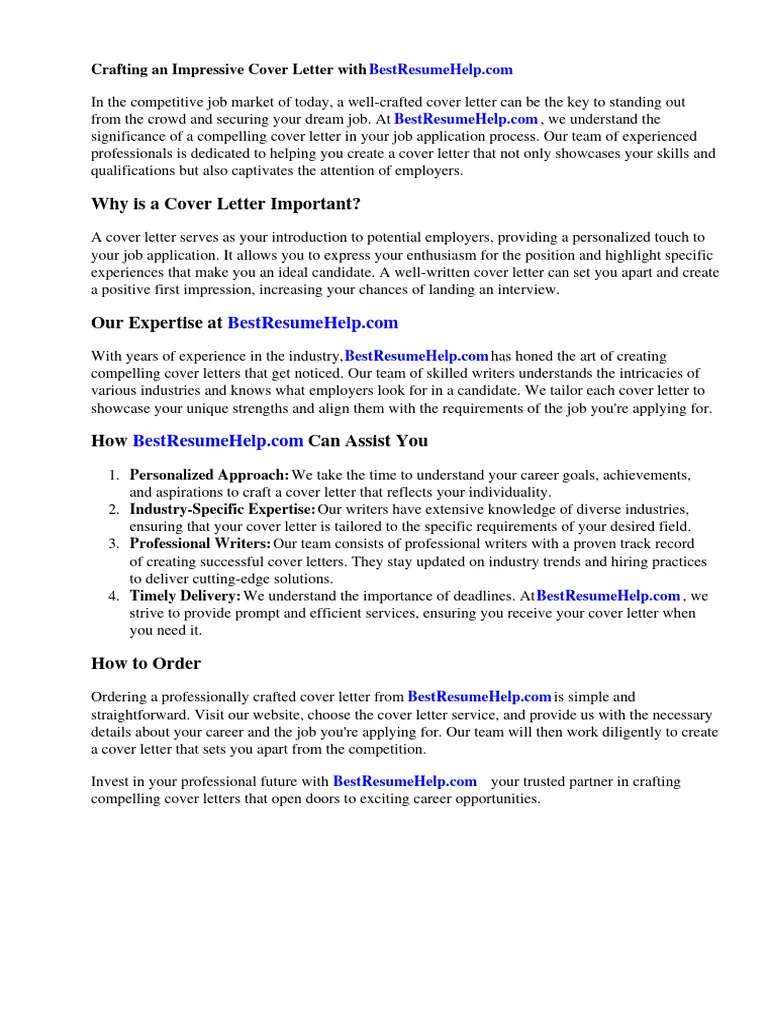Crafting a Housing Case Manager Cover Letter
A well-crafted cover letter is your first opportunity to make a positive impression on a potential employer. For a Housing Case Manager, this document is crucial because it introduces you, highlights your relevant skills, and provides context to your resume. The goal is to showcase your passion for assisting individuals and families in securing and maintaining stable housing, addressing their needs, and advocating on their behalf. Your cover letter should be tailored to each specific job application and demonstrate a clear understanding of the organization’s mission and the role’s requirements. Consider it as your personal sales pitch, designed to convince the hiring manager to invite you for an interview, providing insight into your experience and the value you bring.
Highlighting Relevant Skills for Housing Case Managers
Housing Case Managers require a specific set of skills that should be prominently featured in your cover letter. Begin by identifying the key skills listed in the job description and then integrating these skills into your narrative. Emphasize your abilities in areas like client assessment, case management planning, resource coordination, and advocacy. Communication skills, both written and verbal, are essential, as you will interact with clients, landlords, social service agencies, and other stakeholders. Problem-solving, crisis intervention, and the ability to manage a diverse caseload are also vital. Show how your skills align with the job’s requirements, providing concrete examples of how you’ve successfully applied these skills in previous roles. Quantify your achievements whenever possible; for example, mention the number of clients you’ve assisted or the percentage of clients you helped secure housing.
Communication Skills
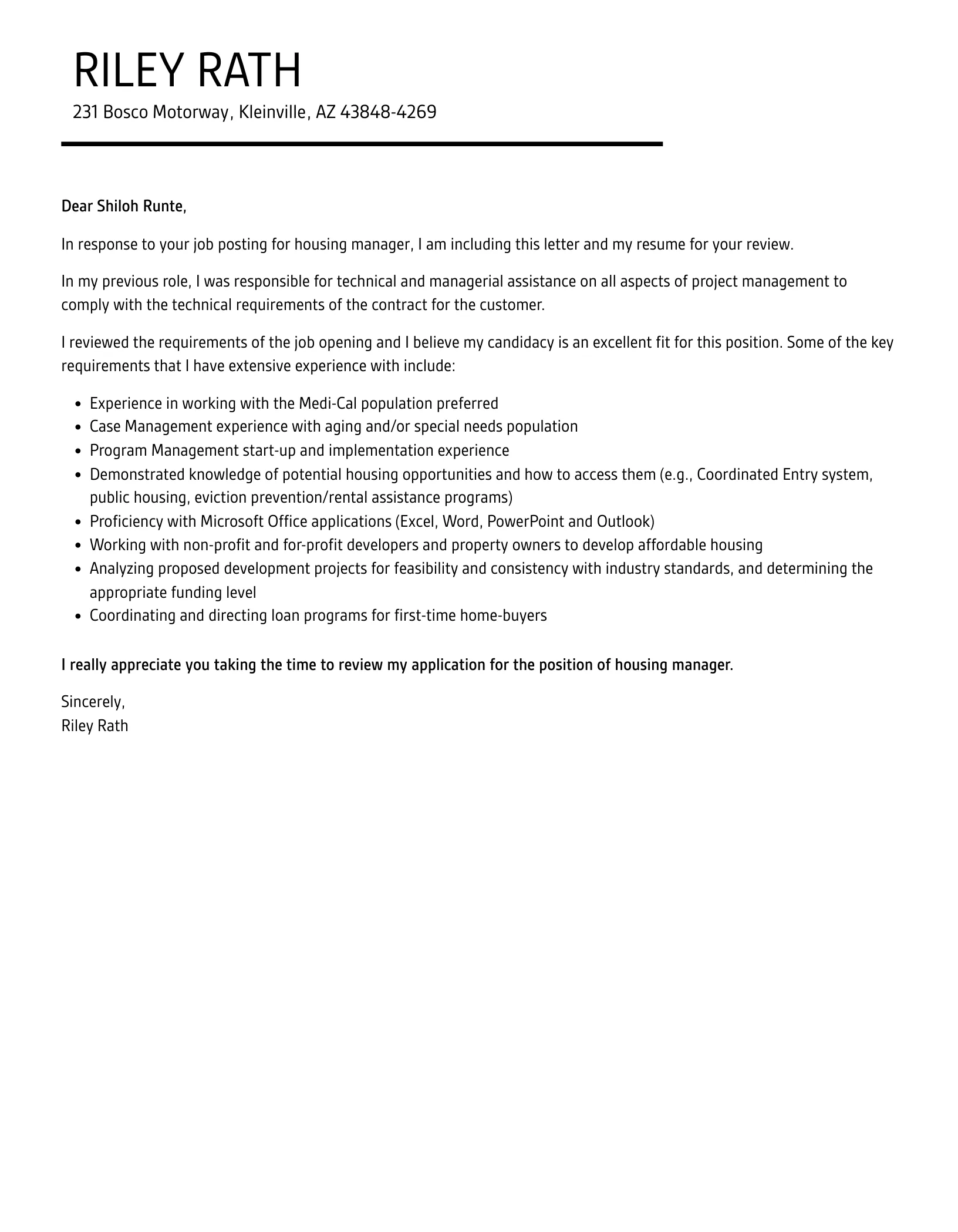
Communication is a cornerstone of effective housing case management. Your cover letter should demonstrate excellent written and verbal communication abilities. This includes the capacity to interact clearly and empathetically with clients, explain complex information in an understandable manner, and effectively collaborate with various professionals. Highlight instances where you’ve successfully communicated difficult news or negotiated on behalf of a client. Good communication also involves active listening and the ability to tailor your message to suit the audience, a skill that translates directly to building trust and rapport with clients and partners.
Problem-Solving Skills
Housing Case Managers often face complex situations that require creative problem-solving. Your cover letter should showcase your ability to analyze problems, identify potential solutions, and implement effective strategies. Describe instances where you’ve overcome obstacles to secure housing for clients, such as navigating bureaucratic processes, mediating disputes between tenants and landlords, or finding alternative housing options. Illustrate your decision-making process and emphasize your ability to think critically under pressure. The ability to troubleshoot challenges is a highly valued skill in this field, and demonstrating this capability in your cover letter can set you apart.
Detailing Experience in Housing Case Management
Your cover letter should provide a concise overview of your relevant experience. Begin with your most recent position and work backward, summarizing your responsibilities and accomplishments in each role. Focus on experiences directly related to the Housing Case Manager position, such as assisting clients with housing applications, conducting needs assessments, developing individualized service plans, and coordinating with community resources. Clearly articulate the specific tasks you performed and the outcomes achieved. If you are new to the field, highlight any transferable skills from previous roles, such as customer service, social work, or administrative experience, and explain how these skills make you a suitable candidate. Always tailor your description to match the requirements outlined in the job description.
Showcasing Achievements in Your Cover Letter
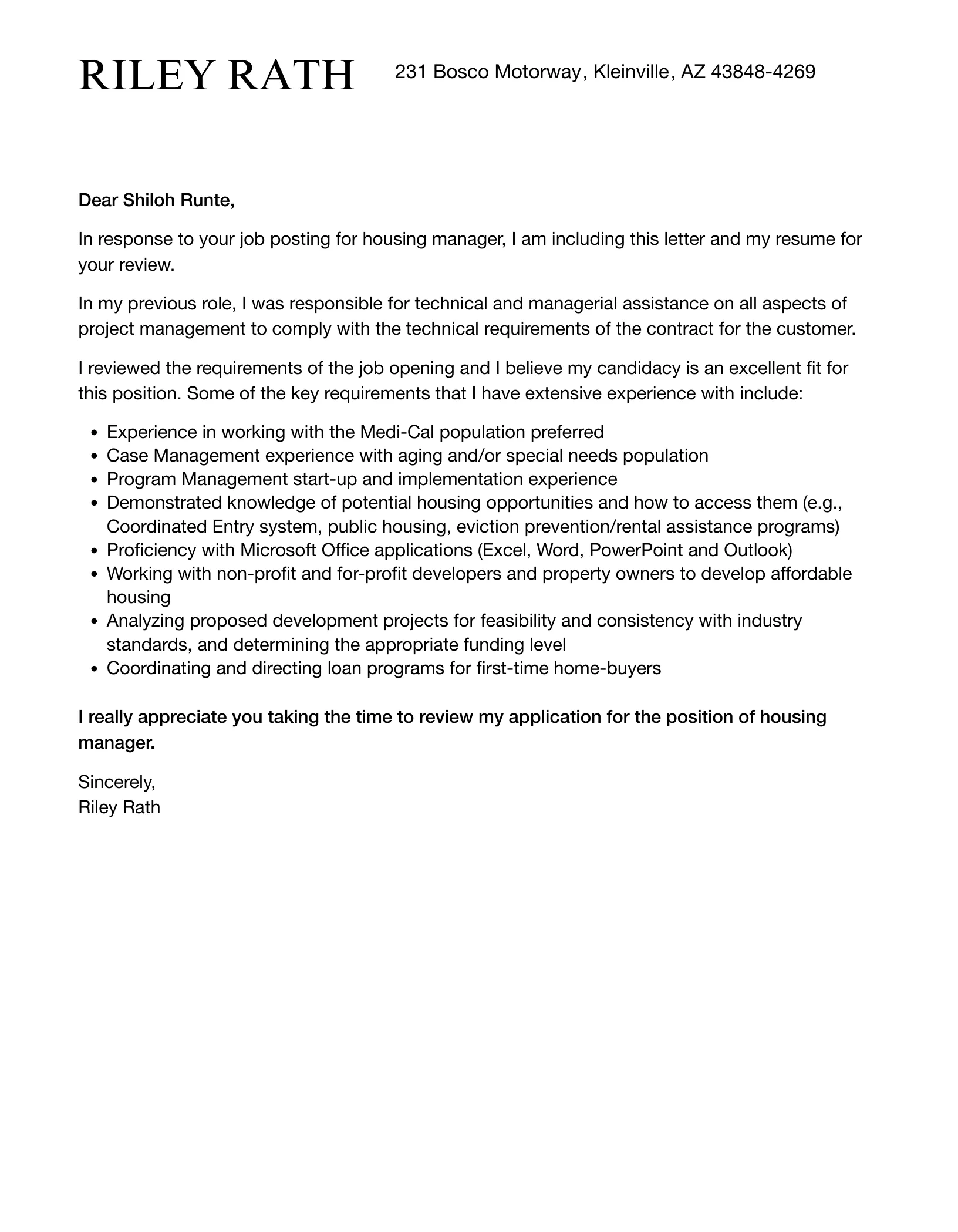
Instead of simply listing your job duties, use your cover letter to showcase your achievements and their impact. Quantify your accomplishments whenever possible. For example, instead of saying, ‘Assisted clients with housing applications,’ state ‘Successfully assisted 50+ clients in completing housing applications, resulting in a 90% approval rate.’ Highlight any improvements you’ve made in processes, any awards or recognition you’ve received, or any positive outcomes you’ve achieved for your clients or the organization. Demonstrating your successes shows potential employers the value you bring and provides concrete evidence of your skills and experience. By using action verbs and specific examples, you can bring your cover letter to life and make a lasting impression.
Keywords and Phrases to Use in Your Cover Letter
To increase your chances of getting noticed, strategically incorporate keywords and phrases from the job description into your cover letter. Review the job posting carefully and identify the key skills, responsibilities, and requirements the employer is seeking. Then, weave these keywords naturally into your text. Some common keywords for a Housing Case Manager cover letter include ‘case management,’ ‘client advocacy,’ ‘housing assistance,’ ‘assessment,’ ‘service coordination,’ ‘homelessness prevention,’ and ‘resource referral.’ Using these terms will help your cover letter pass through applicant tracking systems and grab the hiring manager’s attention. However, remember to avoid keyword stuffing; the letter should still read fluently and authentically.
Formatting Your Housing Case Manager Cover Letter
The formatting of your cover letter is just as important as the content. Use a professional font such as Times New Roman, Arial, or Calibri, and maintain a consistent font size throughout the document. Keep the letter concise, aiming for one page, and use clear and concise language. Break up large blocks of text with short paragraphs and bullet points to improve readability. Include appropriate headings and subheadings to organize your information and make it easy for the reader to scan. Proofread your cover letter carefully to eliminate any typos or grammatical errors. A well-formatted cover letter reflects your attention to detail and professionalism.
Reviewing and Polishing Your Cover Letter for Success
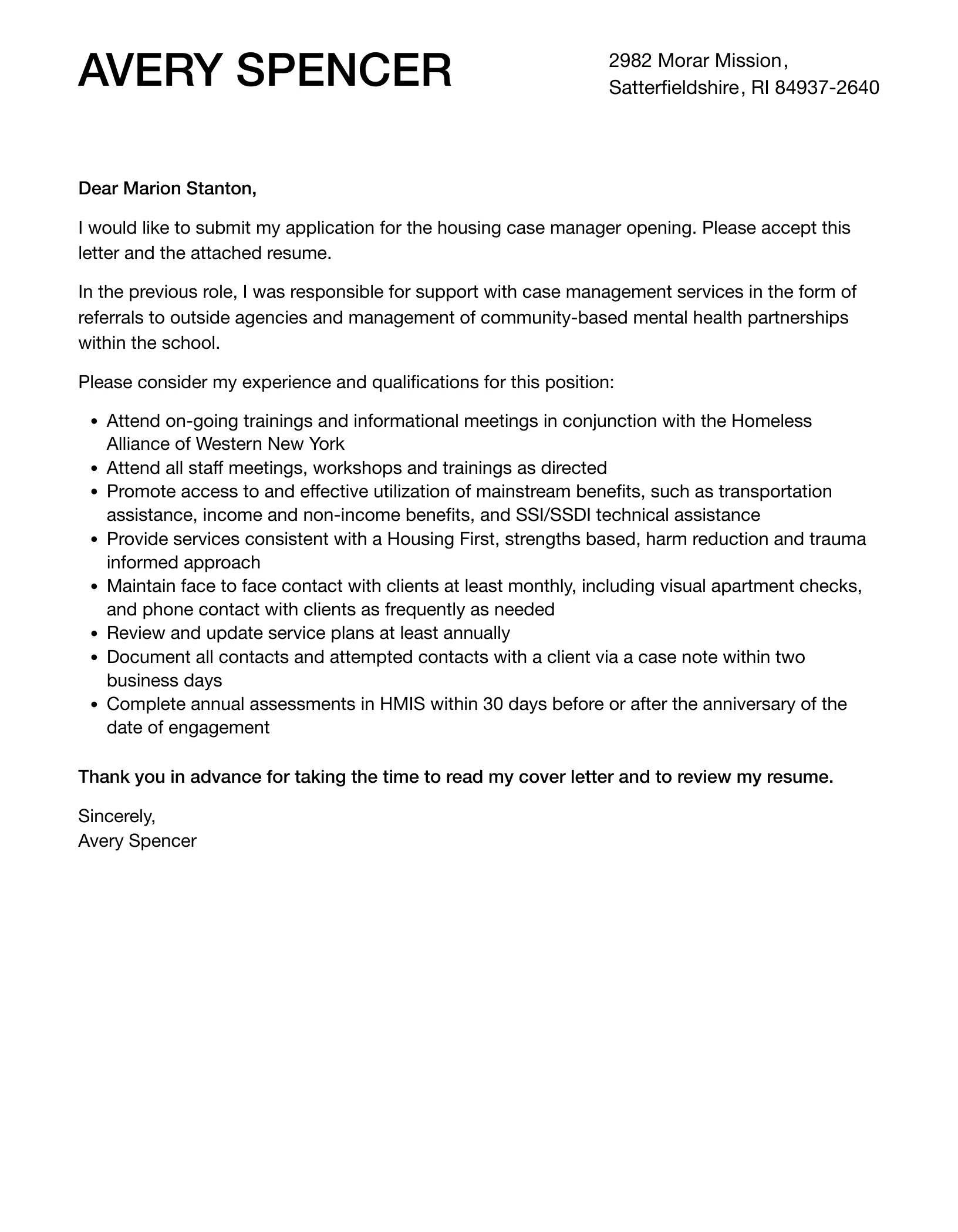
Before submitting your cover letter, it’s essential to review and polish it thoroughly. Check for any grammatical errors, typos, or inconsistencies in formatting. Ensure that your cover letter flows logically and presents a clear narrative of your qualifications and experience. Read the letter aloud to catch any awkward phrasing or areas that could be improved. It can be helpful to ask a friend, family member, or career counselor to review your cover letter and provide feedback. This objective perspective can help you identify areas for improvement and ensure that your cover letter is compelling and effective.
Contact Information and Addressing the Hiring Manager
Always include your contact information at the top of your cover letter. This should include your full name, phone number, email address, and optionally, your LinkedIn profile URL. Use a professional email address and ensure your voicemail greeting is also professional. Address your cover letter to a specific person if possible. Research the hiring manager’s name and use it in your greeting. If you cannot find a specific name, use a general greeting like ‘Dear Hiring Manager.’ Avoid generic greetings like ‘To Whom It May Concern,’ which can make your letter seem impersonal. Personalizing the letter demonstrates your attention to detail and genuine interest in the position.
Personalizing Your Cover Letter to the Organization
To truly impress a hiring manager, personalize your cover letter to the specific organization and position. Research the organization’s mission, values, and recent initiatives. Show how your skills and experiences align with their goals and how you can contribute to their success. Explain why you are interested in working for that particular organization and what excites you about the role. Tailor your cover letter to the specific job description and use the language and keywords the employer uses. This personalization demonstrates that you have taken the time to learn about the organization and that you are genuinely interested in the opportunity.
Closing Your Housing Case Manager Cover Letter
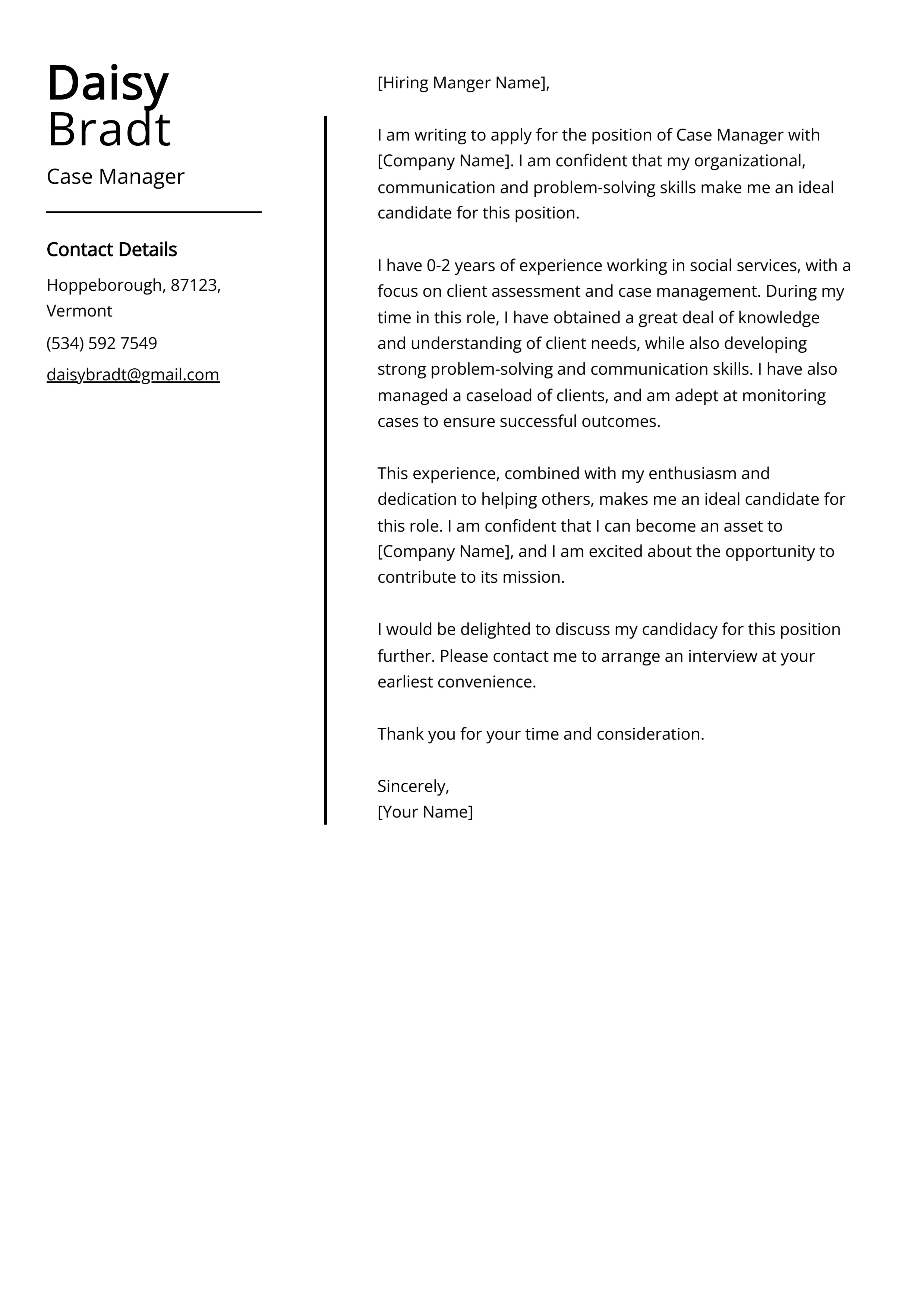
Close your cover letter with a strong, professional closing. Restate your interest in the position and express your enthusiasm for the opportunity. Thank the hiring manager for their time and consideration. Include a call to action, such as encouraging them to review your resume or inviting them to contact you for an interview. Keep your closing concise and professional. A well-written closing leaves a positive final impression and increases your chances of getting noticed and securing the Housing Case Manager position.
